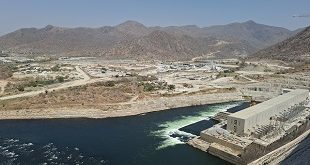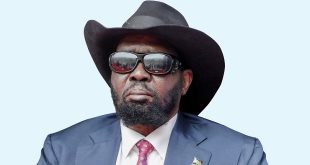
By Joan Akello
Edmond Malilo Owor, Executive Director, Uganda Land Alliance talked to Joan Akello about land issues.
What land activities are you carrying out currently?
At community level, we carry out sensitization and mobilisation. We have sensitised about 20,000 people on the rights on land such as land access, control, and ownership because of our seven Land Rights Centres, support from the Secretariat, leaders, and other civil society organisations. We do capacity building for the land governance structures that are recognised by the legal framework; like the district land boards, area land committees, recorders (sub county chiefs) who have records of land related transactions and keep records on land matters at the sub county level. We also train traditional leaders and equip paralegals in the communities with basic knowledge and laws to manage simple land issues in their various communities. Paralegals are very effective; we use them during demarcations, land mapping proritising Alternative Dispute Resolution (ADR). These paralegals are respected because they are part of their communities as opposed to people who come from Kampala or the district. At the national level we continue to pursue our government to adhere to the laws that govern land.
What are ULA’s most distinctive achievements in the 20 years you have been around?

Our mediation efforts achieve more vis-à-vis the legal framework. We are doing very well in terms of the cases registered and conclusively handled.We are operating in only 20 districts but I wish we could go countrywide. ULA contributed immensely in the making of the constitution in matters relating to land and the various amendments like the Land Act 1998, the National Land Policy and government also recognizes our role.
We originated the idea of Communal Land Associations (CLAs) that bring families that neighbor each other to identify land they consider theirs which can be for the family or some communities or clans. Once all the stakeholders agree, it is registered in the name of the association say 30 families and nine representatives are selected to run the association and handle matters. This is a very effective approach to manage land that is customary. We have formed 52 CLAs but the challenge is that they have never been effectively registered and therefore have no authority. Even where they are awaiting registration, they are able to negotiate.
Deals where land has been sold off have been overturned like in Kaabong District where members blocked a tourism company from carrying out any activity after discovering that it had fraudulently acquired land by forging the signatures of local leaders and also trying to make a South-African company that occupied around 400 acres of communal land without the community’s consent to pay or leave. In Moroto , a mining company agreed to pay Shs 120 million to the Rupa community before it started mining marble on seven hectares of the communal lands. So these associations are a very powerful tool especially in Karomoja sub region. Among 77 success stories submitted by members for the 2014 International Land Coalition award for promoting people centred land governance last, ours about the CLAs in Karamoja won.
Our 2014-2019 Strategic Plan has six goals including protection and enforcement of the rights of the poor; influencing policy through advocacy; improving land rights administration; improving land resource management; improved program quality and greater organisation efficiency and effectiveness. We would like to see every Ugandan benefit from our services.
What do you make of the women who protested in Apaa and the Amuru land dispute at hand?
It is unfortunate; an abomination.It is the natural way to react to an extreme situation. The women did it and I am sure they can do it again. Madhvani and some individuals have taken tens of hectares and square miles. The reasoning for Amuru is that land shouldn’t lie idle but they have never seen the kind of benefit that should see them relinquish their land. Enough research has been done to show that in Jinja where sugarcanes are growing, there is poverty. So they are saying no, we can eat our Malakwang; we do not even want sugar. This resistance is because we have empowered them .That is why some people were taken to State House, others to Madhvani and shown around and given whisky in the evening, their children given scholarships but in Amuru people are saying our land is what we are left with.
For the Apaa case, it was a message that this is how far we are willing to go and is worth doing something abominable. Some people say it was politically motivated but I disagree. There have been several visits by different teams like ministers, District Internal Security Officers (DISOs),and Uganda Investment Authority. Even President Museveni says we shall solve these issues intelligently because the people are anti-development.
The way out of this is a very clear and strategic process to reveal who is really behind the so-called demarcation.The government claims that the Local Council V (LC) of Amuru called them to demarcate the land but the residents say there was no discussion of that sort. Third Deputy Prime Minister Moses Ali’s name is being mentioned on the ground as having got the largest but if its Moses, it’s simply a matter of Museveni saying stop disturbing my people. As long as they let it go on and find people with determination like Gen. Aronda Nyakairima who said that even if you undress, we shall demarcate, this will continue. So as anger builds, do not be surprised to see bloodshed in that area. People are getting charged. Land is a very emotional issue. We urge for dialogue, there are some discussions going on, the local leaders there are organising a meeting, and want to discuss that matter, and for us we want to do it at the national level.
The Uganda Land Policy was passed in 2013, what impact has it made and what loopholes exist?
It is a very good law. Sadly, it is still in the shelves. It was launched with pomp and even bent some rules because some Members of Parliament (MPs) said certain processes were bypassed. Ten years were invested in making it but government has no clear road map yet. As government continues to have its priority elsewhere, we shall implement the policy.
The constitutional amendments provide for creation of City Land Boards. How effective do you think they will be?
It talks about the City Land Boards, its functions and other land related issues but these are politically driven amendments. There have been clashes between Kampala City Council Authority (KCCA) Land Board and KCCA itself because of the failure to respect laws. This is to completely disempower the office of the mayor and also take powers from the Uganda Land Commission.
Recently CSOs including ULA said they had information that government wants to amend Article 26 of the constitution to give government powers to have access and own someone’s land before compensation. In case it is passed, what impact will it have?
We thank government for failing to table it and it should not see the light of day because it is unfair.We make laws and they catch up with us. The MPs who want this bad law are also land owners. It will catch up with them when they are no longer MPs. If land can be grabbed when there is a law that prohibits the government; what about when there is a law that allows it? It will be chaos. We shall continue talking. People are saying we are being speculative because it has been withdrawn but we know how our government works. Tomorrow it can wake up and pass it.
Communal landsare usually not titled, demarcated or surveyed but what should be done to protect people who live in those lands found in mineral and oil rich areas from land grabbing?
Continuous increase in land grabbing, allegations arising from ever growing pressure for investment, and international growth dynamics are partly responsible for the speed of selling land and pushing people to the edge for large scale based investments and that is not about to stop but the process of transferring, use of land must involve everybody and not be decided by a handful. Of course minerals will be discovered and have to be mined because we are a rural based economy but we must ensure that you put mechanisms that will not make people poorer, beggars or simply one person who is going to fence and deploy soldiers to whip people or create a factory that will bring environmental disaster.If it’s customary land, there is still a procedure, the CLAs are very crucial and the law recognises them. District Land Boards and Area Land Committees are key in handling land issues but some districts do not have them. Every district is supposed to have a board that is approved by the Local Government.
For any land acquisition whether for purposes of mining or any activity, there should be very clear consultations and processes. The communities must be allowed to have legal representation to demand what is fair, adequate, and worth of their land. Otherwise in Buliisa they are giving people Shs2 million to Shs3million. Five years down the road, some are still there, stranded.
According to the land policy, the government will regulate the amount of land investors can access, yet population growth is also mounting pressure on land. How best can a country balance both?
Investment is not bad; it’s the process that is not managed well. An investor identifies land and the next thing is people being evicted without the due legal procedure. Land is a critical factor of production. The developments that come along should not be rejected but what will happen in Uganda is shortchanging people in land acquisition. The people of Amuru have said that they are not against investment but want to be directly engaged in determining the worth of their land and ensure the laws are followed. You are displacing 1,000 people but how are they all going to benefit? Even if they do not benefit directly, how does that investment relate to the people who will be displaced or live around? Such consultations and discussions are not done. An investor should do due diligence and talk to the people you want to acquire land from. Be transparent and as realistic as possible and nobody will refuse. Assure Ugandans that up to 80 percent of the labour below a certain position must be for them. At executive level, there should be at least 30 to 40 percent. In Kenya, that is closely followed and should they find you have crossed the line, instead of 5percent, you have 4 percent; they will close your investment and fine you heavily. But here, they will sack the workers, whip or teargas them. In Hoima, a certain man has bought vast lands and even the Resident District Commissioner (RDC) is siding with him. Before this state possession begun, this man knew that oil was there. We who wield authority are so selfish. Immigrants come and within months have acquired national IDs, land and they are protected by some state factions. So it’s about failure to implement the laws. We need funding to go around the country to sensitise the people.
 The Independent Uganda: You get the Truth we Pay the Price
The Independent Uganda: You get the Truth we Pay the Price


